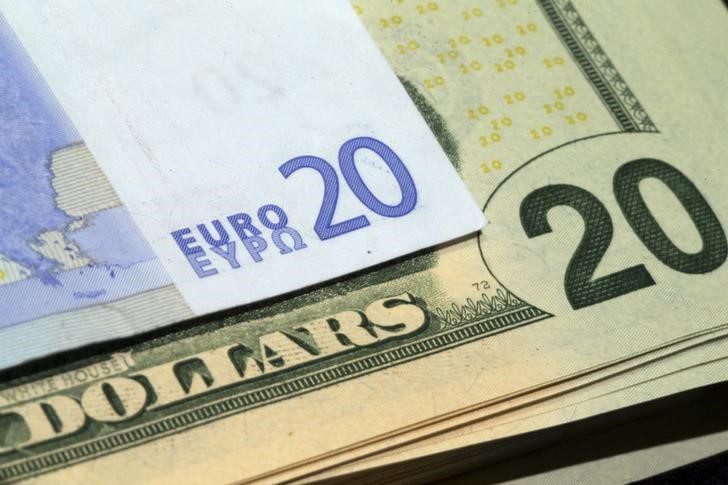Investing.com – The U.S. dollar was steady on Monday, on track for a big monthly gain, while the euro was steady at the start of an action-packed week.
At 05:35 ET (09:35 GMT), the Dollar Index, which tracks the greenback against a basket of six other currencies, was trading largely unchanged at 104.147 but on track for a gain of around 4%, the sharpest monthly increase since April 2022.
Ask for dollars at the beginning of the key week
The dollar has been in high demand lately due to growing expectations of smaller interest rate cuts in the US based on fairly healthy economic data.
This sentiment is likely to be tested this week, with US data on Wednesday and, more importantly, monthly figures on Friday.
Friday’s employment report is expected to show that job growth slowed to a more modest 111,000 in October, due to the impact of strikes and weather-related disruptions from Hurricane Helene and Milton.
The Fed already signaled its intention to cut rates by 25 basis points at its November meeting, after delivering a 50 basis point rate cut in September, but this week’s economic data could still have some influence on that decision to have.
The dollar has also been boosted by the perceived greater likelihood that former President Donald Trump will return to the White House, with this week entering the last full week before the November 5 US presidential election.
Republican presidential candidate Donald Trump and his Democratic rival, Vice President Kamala Harris, are tied in national and swing state polls, but the former president is a slight favorite in the election prediction markets.
This week will also see the release of key earnings from five of the ‘Magnificent Seven’ US titans: Google parent Alphabet (NASDAQ:) on October 29, Microsoft (NASDAQ:) and Facebook parent Meta Platforms (NASDAQ:) on October 29 . October 30, and Apple (NASDAQ:) and Amazon (NASDAQ:) on October 31.
The Euro looks like a significant monthly loss
In Europe, yields rose 0.2% to 1.0819, with the euro on track for a monthly loss of around 3%, amid concerns about weak regional growth prospects.
The ECB has already cut interest rates three times this year, each time by 25 basis points, but expectations are growing that the central bank will consider a bigger cut at its next meeting.
These expectations could increase this week if the annual interest rate, due on Thursday, is confirmed again below the ECB target of 2.0%.
traded 0.1% higher at 1.2973, on track for a weekly loss of around 0.5%, also on course for a monthly loss of 3%.
The new Labor government will announce its first government in Britain on Wednesday, and markets are wary that Chancellor of the Exchequer Rachel Reeves will turn to additional borrowing and tax interventions as she tackles high debt, government spending commitments and promise not to raise income taxes will balance out.
Yen weakness due to political change
rose 0.5% to 153.09 and held steady at a three-month high, with the Japanese yen falling to a three-month low after last weekend’s parliamentary elections.
Reports indicate that the coalition led by Japan’s ruling Liberal Democratic Party failed to win a majority in Sunday’s parliamentary elections.
The LDP will now have to seek coalitions with smaller regional parties to retain power – a scenario that presents more fractured political prospects for Japan.
Traders are betting that increased political uncertainty will not raise rates further later this week – a scenario that does not bode well for the yen.
rose 0.2% to 7.1305, to a more than two-month high, ahead of the release of China’s Purchasing Managers’ Index data later in the week.


